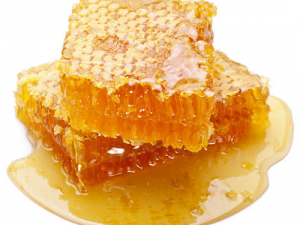Naki unveils the world’s most expensive manuka honey
Naki Honey, a New Zealand manuka apiary company, has crafted what is believed to be the world's most expensive honey.
 Export revenue for New Zealand pure honey reached a record $315 million for the year ended 2016, up 35% on the previous year.
Export revenue for New Zealand pure honey reached a record $315 million for the year ended 2016, up 35% on the previous year.
Export revenue for New Zealand pure honey reached a record $315 million for the year ended 2016, up 35% on the previous year.
This increase reflects value per kg rather than increased volume.
“New Zealand’s apiculture industry has grown rapidly over the last few years with strong market demand for premium New Zealand honey, especially mānuka honey, driving a lot of the current expansion,” says Karin Kos, chief executive of Apiculture New Zealand, the peak industry body for New Zealand honey and beekeeping industry.
“Here at home and abroad, consumers love New Zealand honey which is in high demand around the world,” says Kos.
The report showed that while export prices rose for New Zealand honey during 2015/16, world honey prices fell.
In the same year, New Zealand produced a record honey crop of 19,885 tonnes. Registered hive numbers reached 684,046 in June 2016, while registered beekeeping enterprises increased by 21% to 6735, the highest annual increase in recent years.
Kos says that the industry has continued to see growth in registered hive numbers over the 2016/17 season but that the current season was a lot more challenging, with poor weather conditions affecting this year’s honey crop.
“It’s been a very tough season for our industry this year but the long-term outlook for New Zealand apiculture remains strong.”
Kos acknowledged the concerns outlined in the MPI report over ongoing bee health, competition for apiary sites and maintaining the confidence of overseas consumers in the integrity of mānuka honey.
“As with any industry experiencing significant growth, we are experiencing some growing pains but we have a lot to look forward to, and we are committed to ensuring our growth is managed sustainably, and our honey bee colonies remain healthy,” says Kos.
Global trade has been thrown into another bout of uncertainty following the overnight ruling by US Supreme Court, striking down President Donald Trump's decision to impose additional tariffs on trading partners.
Controls on the movement of fruit and vegetables in the Auckland suburb of Mt Roskill have been lifted.
Fonterra farmer shareholders and unit holders are in line for another payment in April.
Farmers are being encouraged to take a closer look at the refrigerants running inside their on-farm systems, as international and domestic pressure continues to build on high global warming potential (GWP) 400-series refrigerants.
As expected, Fonterra has lifted its 2025-26 forecast farmgate milk price mid-point to $9.50/kgMS.
Bovonic says a return on investment study has found its automated mastitis detection technology, QuadSense, is delivering financial, labour, and animal-health benefits on New Zealand dairy farms worth an estimated $29,547 per season.

OPINION: Here w go: the election date is set for November 7 and the politicians are out of the gate…
OPINION: ECan data was released a few days ago showing Canterbury farmers have made “giant strides on environmental performance”.